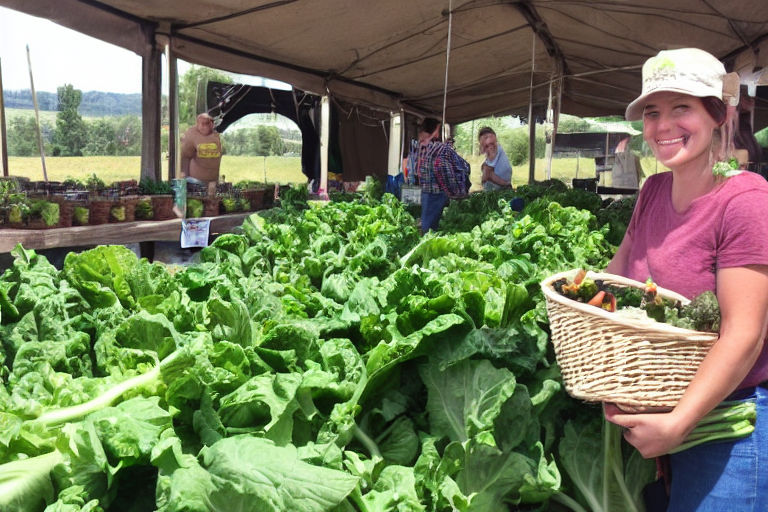Connecting with our food sources: The role of local farmers and community-supported agriculture (CSA) in sustainable food systems.
In recent years, there has been a growing interest in sustainable food systems, and many people are looking to connect with their food sources. One way to do this is by supporting local farmers through community-supported agriculture (CSA) programs. In this article, we will discuss the importance of local farmers and CSA in creating sustainable food systems.
Local Farmers
Local farmers play a crucial role in sustainable food systems. They are essential for ensuring that food is grown and distributed locally, reducing the need for long transportation and minimizing the carbon footprint of our food. Moreover, local farmers help support the local economy by providing jobs and supporting other local businesses.
Benefits of Community-Supported Agriculture (CSA)
Community-supported agriculture is a system that connects consumers directly to local farmers. In a CSA program, people pay a fee upfront and receive a share of the farm's harvest throughout the growing season. CSA has several benefits. It provides consumers with access to fresh, locally grown produce, and it supports small-scale farmers by providing them with a stable source of income. Additionally, CSA programs foster a sense of community and allow people to connect with the farmers who grow their food.
Supporting Local Farms and CSA
There are many ways to support local farms and CSA programs. One way is to purchase produce directly from local farmers at farmers' markets. This not only supports the farmers but also provides consumers with access to fresh, locally grown fruits and vegetables. Another way to support CSA is by signing up for a share in a CSA program in your area. By doing this, you are supporting small-scale farmers and ensuring that you have access to fresh, locally grown produce throughout the growing season.
In conclusion, local farmers and community-supported agriculture play a crucial role in creating sustainable food systems. By supporting local farmers and CSA programs, we help to reduce the carbon footprint of our food, support small-scale farmers, and foster a sense of community. So, let us get connected with our food sources and support sustainable food systems.



